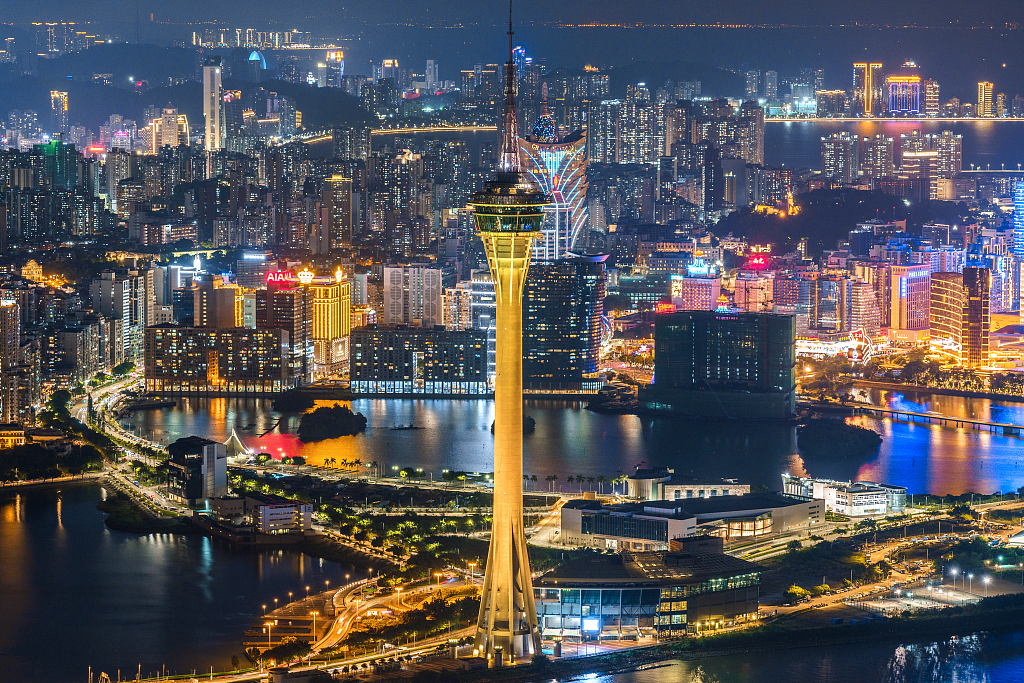
BY STEPHEN NDEGWA
The 25th anniversary of Macau’s return to the motherland, which will be observed from December 18 to December 20, is a moment of profound significance for China and an opportunity to reflect on the broader implications of reunification.
Macau's return in 1999 marked the end of over 400 years of Portuguese colonial rule, ushering in a new era under the "One Country, Two Systems" framework. This milestone has served as a shining example of China's capacity to reclaim its territories peacefully and manage them with respect for their unique identities.
As celebrations for this anniversary unfold, it offers a compelling case to argue that Taiwan, like Macau, is an inseparable part of China and should one day be returned to the fold. Macau's reunification was a triumph of diplomacy, patience, and cultural resonance. Its reintegration has underscored the enduring ties between the mainland and territories that have, for historical reasons, been temporarily distanced.
For the people of Macau, their cultural roots, shared heritage, and language reaffirmed their connection to the Chinese nation. Despite centuries of foreign rule, Macau’s identity as inherently Chinese never waned.
The peaceful handover and the success of the "One Country, Two Systems" framework demonstrate that reunification does not mean erasure of distinctiveness but rather a celebration of it within a unified national framework.
The parallels with Taiwan are clear. Taiwan, like Macau, shares a deep cultural, historical, and linguistic bond with the mainland. The island has been an integral part of Chinese history for centuries, from the Qing Dynasty to its modern status before the upheavals of the Chinese Civil War. The temporary division that arose from political conflict and external influence does not negate this fact.
Taiwan’s shared heritage with the mainland runs through its traditions, festivals, language, and family ties that transcend the waters of the Taiwan Strait. If Macau can return to the motherland and thrive, why should Taiwan's path to reunification be any different? The example of Macau is particularly significant because it dispels the fear that reunification would suppress the identity or prosperity of a region.
Under Chinese sovereignty, Macau has retained its economic dynamism, cultural vibrancy, and administrative autonomy in accordance with the Basic Law. It has flourished as a global tourism and gaming hub, benefiting from close integration with the mainland's economy while preserving its distinct character.
This success story offers a model for Taiwan, which fears losing its economic and political freedoms in the event of reunification. Taiwan, with its advanced industries and innovative culture, stands to benefit enormously from closer cooperation with the mainland while safeguarding its unique contributions within a reunified China.
Critics often argue that Taiwan is fundamentally different from Macau due to its political system and historical trajectory since 1949. However, these differences are superficial when viewed through the lens of shared ancestry and cultural unity. If Macau’s colonial history did not sever its bond with the mainland, then Taiwan’s decades of political separation cannot erase its inherent Chineseness.
Both territories embody the enduring spirit of the Chinese people, who have historically overcome fragmentation to build a united and strong nation. The reunification of Macau also demonstrates that the process of reclaiming lost territories need not be violent or coercive. Diplomacy and mutual respect paved the way for Macau's return, creating an enduring example of how China approaches such matters with a commitment to peaceful solutions.
Taiwan, though a more complex situation, could ultimately follow a similar path. The mainland has repeatedly expressed its preference for peaceful reunification, offering the "One Country, Two Systems" framework as a basis for negotiations. Amid pockets of uncertainty in Taiwan, the anniversary of Macau's return should remind the island of the potential for reunification to bring stability and opportunity rather than conflict.
As China marks this anniversary, it is a moment to reaffirm that Macau’s success is not an isolated story but part of a broader vision for national rejuvenation. If Macau is Chinese, so too is Taiwan. The bonds that unite the mainland, Macau, and Taiwan are unbreakable, grounded in a shared history and destiny.
Macau’s return has enriched the Chinese nation, and Taiwan’s return would only further solidify the dream of a unified and prosperous China. In celebrating Macau’s 25 years under the motherland’s embrace, the message is clear - reunification is not just possible; it is inevitable. The question is not whether Taiwan will return, but when.
Stephen Ndegwa is the Executive Director of South-South Dialogues, a Nairobi-based communications development think tank and a PHD student at the United States International University-Africa.









